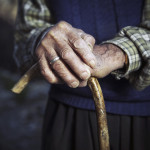HIV-positive San Francisco residents above age 50 have a high rate of problems related to aging, aidsmap reports. Publishing their findings in the Journal of Acquired Immune Deficiency Syndromes, researchers conducted a cross-sectional observational study of a largely male group of 359 HIV-positive people in San Francisco age 50 and above who were recruited between December 2012 and December 2014.
Eighty-two percent of the participants had an undetectable viral load, and the majority had more than 500 CD4s. The median age of the cohort was 56. Two thirds of the individuals were in their 50s.
The researchers assessed the participants for various factors, including physical health and functioning, social support, and mental, behavioral and general health.
Forty-one percent of the men reported sustaining a fall during the previous year; nearly 60 percent experienced loneliness; half said they had little social support; and more than one in three had mild cognitive impairment.
Forty-seven percent of those 60 and older reported balance problems, compared with 33 percent of those in their 50s. The older set had slower walking speed. About 12 percent of those in each age bracket had problems with physical health and functioning.
On the upside, the older individuals had less reported anxiety and adhered at higher rates to their HIV medications.
Having a higher score on the Veterans Aging Cohort Index, which is a tool that identifies HIV-positive individuals who have a high risk of illness and death, was associated with a greater level of dependence on others, according to the Instrumental Activities of Daily Living scoring system; this system looks at the ability to do ordinary tasks like using the phone, shopping, housekeeping, managing finances and taking medications.
The authors concluded, “Our findings aide in the understanding of functional impairment in the current treatment era, and are consistent with other studies that have suggested there is a significant burden among older adults who need assistance with daily tasks, especially tasks like managing medications and shopping.”
To read the aidsmap article, click here.
To read the study abstract, click here.







Comments
Comments